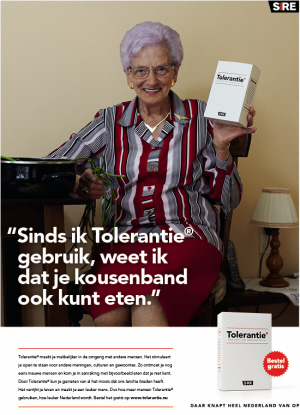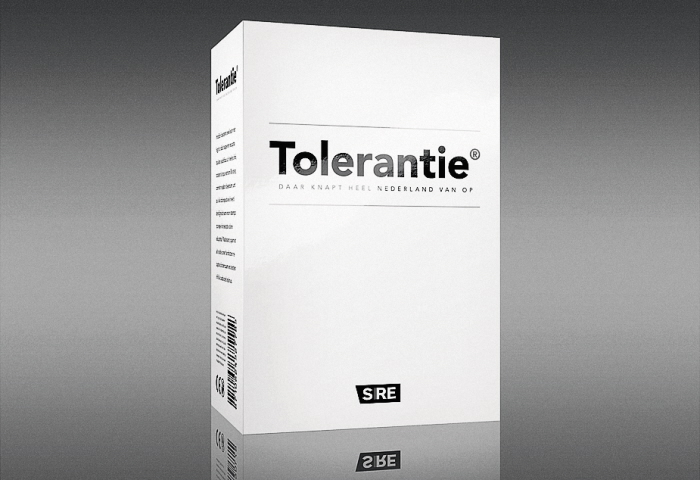Column: Get lost with this tolerance of yours!

“Now that I use Tolerance I know that you can eat Surinam okra.”
Let’s just start by analysing the word “tolerance”. Tolerance means accepting behaviour or people that are different from the norm, even if the presence of such behaviour or people is perceived as negative. The definition presumes an existing status quo that determines whether or not certain elements in society should be allowed to exist. At the same time a dividing line is created between deviating behaviour that is acceptable and that is unacceptable. Those who promote the tolerance myth in the Netherlands are being highly self-congratulatory, as if we ought to be grateful to them for taking control of the right to determine the prevailing norms, and subsequently turning a blind eye to a few deviations from those norms.
| The original text in Dutch (November 24th, 2014) Translated into English by Jet |
How do you determine what the prevailing norms should be? Have a look at some of the people who are “being condoned”: the so-called “allochtons”, the people with an islamic background, women who refuse to submit themselves to a patriarchic role definition, people with an LGBT background, black Dutch citizens whose families have been living here for generations, and so on. In short: everything that deviates from the patriarchic, hetero-normative, western-christian, racist and capitalist world view of the white male status quo.

Obviously “tolerance” provides a certain amount of space within societies that is not available in other, less “tolerant” societies. Sometimes it is based on simple and practical considerations. The presence of “allochton immigrant workers” was “tolerated” in the seventies because the bosses needed workers they could easily exploit and they saw this as a fitting role for people coming from less prosperous countries within or just outside of Europe. But very often the social space for those who are “different” is the result of a social struggle. The (still too limited) space within society for lesbians, gays, bisexuals and transgenders is the outcome of a struggle of many years, among other things via the well-known pride parades that followed after the Stonewall riots in the U.S. By framing this hard-won space as the result of the tolerance that the status quo offers, the entire history of this struggle is being swept under the rug.
By acknowledging the “tolerance” framing we confirm the legitimacy of the existing establishment. As a result we confirm the position of the so-called “tolerated people”. A position as second class “citizens” who are dependent upon the “charity” of the “tolerant people” for their right to exist and their freedom to express themselves. We are not interested in whether or not the Netherlands used to be more “tolerant” in the past or not. Tolerance itself is a concept that we should get rid of straight away. The myth of tolerance is nothing but an obstacle in our struggle to be free.
We do not want to be “condoned”, nor admitted, nor “tolerated”. That is why I say: screw this tolerance of yours! Freedom and equality is what we are fighting for.
Ilija Andrić
